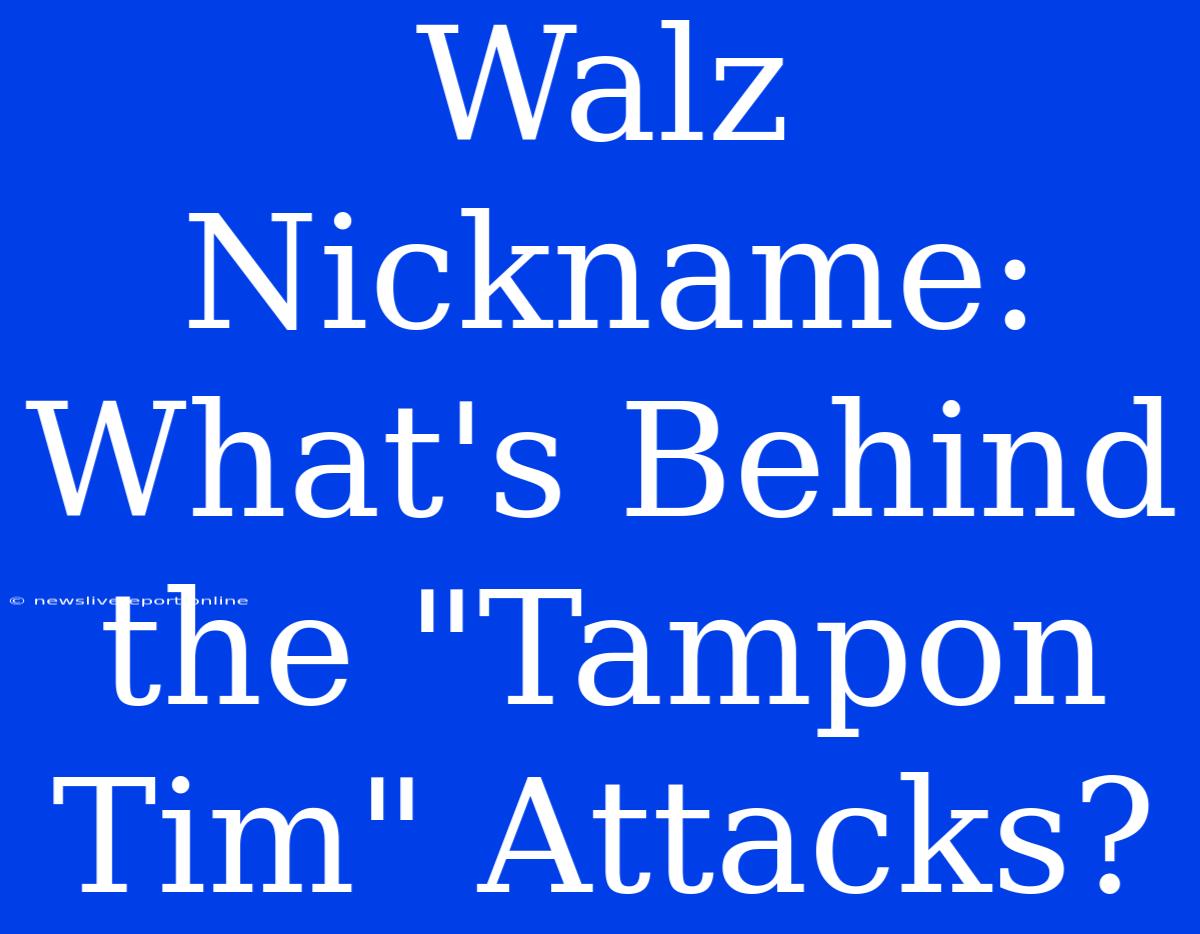Walz Nickname: What's Behind the "Tampon Tim" Attacks?
The Use of Misogynistic Language and its Impact on Political Discourse
The recent attacks on Minnesota Governor Tim Walz, using the derogatory nickname "Tampon Tim," have sparked debate about the use of misogynistic language in political discourse. This article explores the origins of this nickname, its implications, and its impact on the political landscape.
Origins of the Nickname
The "Tampon Tim" moniker first appeared during the 2018 gubernatorial race, seemingly originating from conservative circles. Critics argue it is a blatant attempt to demean and discredit Walz by linking him to feminine traits, a tactic often used to undermine male authority and masculinity.
Implications of the Nickname
Using this type of language has several problematic implications:
- Perpetuation of Gender Stereotypes: The nickname reinforces harmful gender stereotypes by associating tampons with weakness and femininity, while equating masculinity with strength and power.
- Normalization of Misogyny: By using such language, the attackers normalize misogyny and contribute to a culture where women are demeaned and belittled.
- Suppression of Dissent: The use of personal attacks and derogatory language often aims to silence dissenting voices and discourage political participation.
Impact on Political Discourse
The "Tampon Tim" attacks highlight a worrying trend in political discourse where personal attacks and derogatory language are increasingly prevalent. This type of rhetoric:
- Lowers the Level of Debate: It shifts the focus away from policy discussions and towards character assassination, ultimately hindering meaningful dialogue and political progress.
- Erodes Public Trust: The use of disrespectful and offensive language erodes public trust in political institutions and the democratic process.
- Creates a Hostile Environment: This type of rhetoric can create a hostile environment for women in politics, discouraging them from seeking public office and furthering the gender imbalance in power structures.
Moving Forward
It is crucial to call out misogynistic language and hold those who use it accountable.
Here are some steps we can take to combat this trend:
- Educate ourselves: We must actively learn about gender stereotypes and understand how they impact our perception of others.
- Call out offensive language: Do not let such language go unchallenged. Speak up when you witness it and encourage others to do the same.
- Support women in politics: We must actively support women who are seeking public office and create a more inclusive political environment.
The use of misogynistic language like the "Tampon Tim" nickname is unacceptable. It is our responsibility to ensure a more respectful and constructive political discourse for a more just and equitable society.

